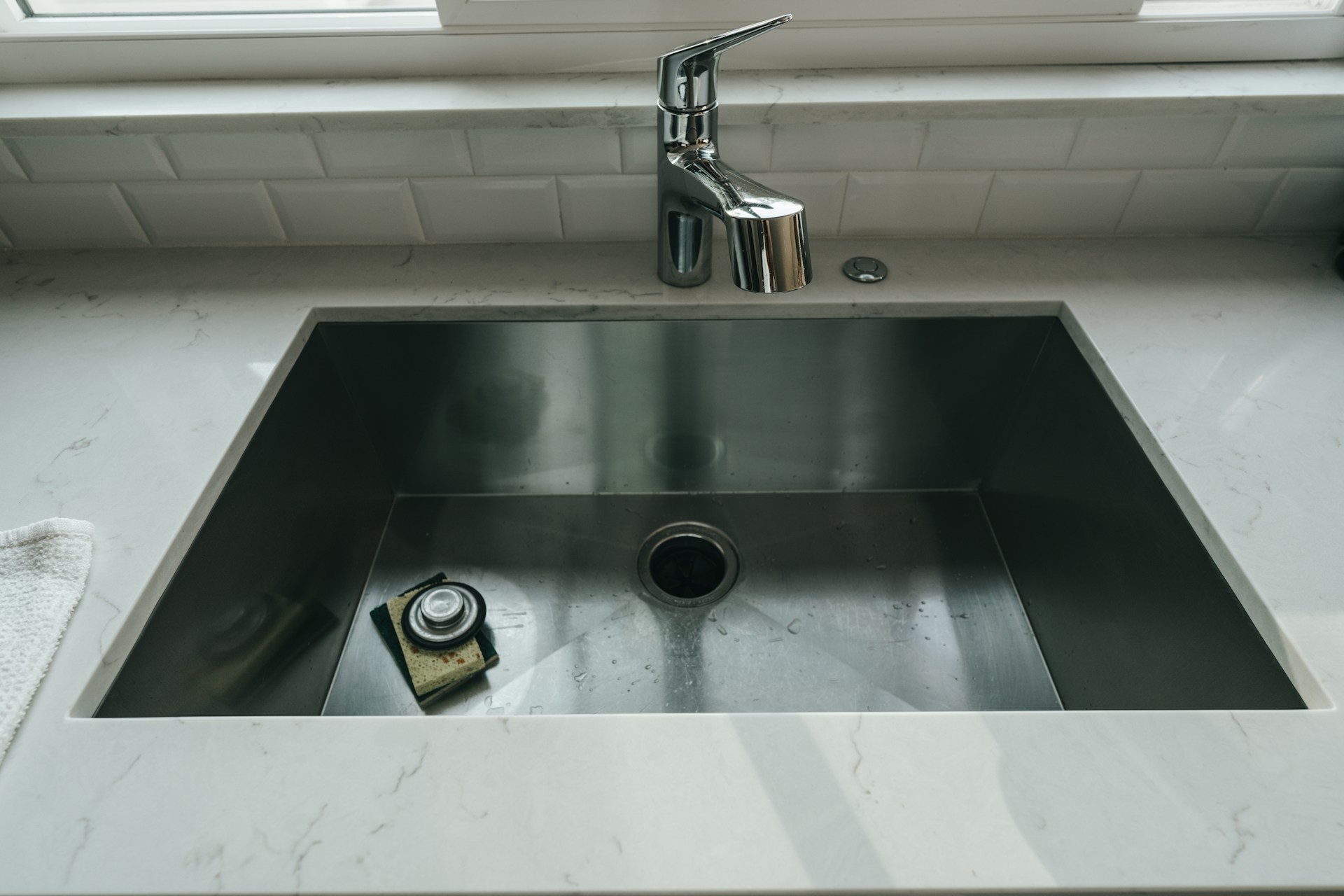A kitchen sink that won’t drain can be a significant hassle in any household. Whether you’re in the middle of meal prep or cleaning up after a family dinner, a clogged sink disrupts daily routines. Keeping your kitchen sink functioning properly is essential for maintaining both convenience and hygiene in your home. When water fails to drain, it often forces us to rethink how we dispose of kitchen waste and how to manage kitchen tasks efficiently.
Clogs not only cause frustration but also lead to stagnant water, unpleasant odors, and potential damage to plumbing. Addressing these blockages promptly is crucial to keep your kitchen functioning smoothly. If you’re facing a stubborn clog and wonder how best to handle it, understanding the common causes and remedies can help.
Common Causes of Kitchen Sink Clogs
Many factors can contribute to a clogged kitchen sink, with food particles and grease being some of the most common culprits. Despite our best intentions, scraps of food often end up in the drain during activities like rinsing dishes or cleaning vegetables. Over time, these particles can accumulate and form a blockage. Grease is another frequent contributor. While it might seem harmless to pour a bit of leftover grease down the sink, it solidifies and sticks to the pipe walls, gradually narrowing the passage and reducing water flow.
Soap residue also plays a role in clogging. Many dishwashing soaps contain fats that can bond with minerals in water, creating a hard residue that sticks to pipes. This build-up can eventually lead to a restriction in water flow.
Improper disposal of non-disposable items is another mistake that can result in a clogged drain. Items like paper towels, fibrous foods, and coffee grounds are often wrongly assumed to be safe for sinks, but they can easily create stubborn blockages when not disposed of properly.
Immediate Steps to Take When Your Sink Won’t Drain
When you encounter a clogged kitchen sink, there are several initial steps you can take to try and resolve the issue. Start by removing and cleaning the sink strainer to clear away any visible debris. This simple action can sometimes restore proper drainage immediately if the issue is minor.
Next, consider using a plunger. It’s an effective tool for dislodging materials stuck in the pipes. Ensure that the sink has enough water to cover the plunger cup, as this creates the necessary suction to perform the task effectively.
Pouring boiling water down the sink is another common remedy, especially if the blockage is grease-related. The heat can melt fatty build-up, helping it flow through the pipes more easily. Be cautious and pour the boiling water slowly to prevent splashes.
If these steps don’t solve the problem, it might be time to consider professional assistance to avoid further complications.
When to Call Our Professionals
Sometimes, a clog stubbornly refuses to move, even after you’ve tried the usual remedies. In such cases, it’s important to recognize when a clog might be beyond typical household methods. If water still pools in the sink after you’ve plunged and poured hot water, the blockage might be deeper in the pipes. Strange noises, like gurgling, or foul smells also suggest a more serious problem that a simple plunger can’t fix. It’s likely that the obstruction could require specialized tools or expertise to fully address.
Bringing in our professionals ensures a comprehensive solution. They have the right equipment, like drain snakes and hydro jets, to clear even the most persistent clogs. Our technicians can assess your plumbing system, identify any underlying issues, and provide effective drain cleaning. Plus, expert intervention helps prevent damage to your pipes that can occur from overzealous DIY attempts. Protecting your home from unnecessary plumbing mishaps makes enlisting professional help a wise choice.
Preventing Future Clogs
Preventing clogs is easier than dealing with them after the fact. With a few simple practices, you can keep your kitchen sink running smoothly. Start by being mindful of what goes down the drain. Avoid disposing of food scraps directly in the sink; instead, use a compost bin or trash for garbage disposal. Dispose of grease properly by collecting it in a container and throwing it in the trash once it solidifies, rather than pouring it down the sink.
Regular maintenance, like flushing your sink with hot water weekly, can keep pipes clear by melting away small buildups before they become a problem. Employing drain screens can catch larger particles before they enter the drain. Scheduling annual inspections with our experts also helps ensure any potential issues are caught early. Their advice and the right tools keep your plumbing healthy.
Ensuring Your Kitchen Sink Stays Clog-Free
Keeping a clog-free kitchen sink is all about awareness and prevention. By paying attention to what goes down the drain and performing regular maintenance, you can mitigate many of the common issues. We’ve discussed the importance of using drain screens and being cautious with grease disposal. Making these efforts part of your routine can save you from the annoyance of an unexpected clog.
For those times when clogs become unmanageable, remember the value of professional support in securing the health of your plumbing. Maintaining your kitchen sink’s functionality is not just about solving problems, but also about preventing them. A little care and attention go a long way in ensuring a smooth and efficient kitchen environment.
If you’re dealing with a clogged drain in Lacey that disrupts your daily kitchen routines, know that our experienced technicians can help you maintain a smoothly running home by addressing the blockage and offering preventive maintenance tips; for a quick estimate or to book a service visit, please contact us today.

